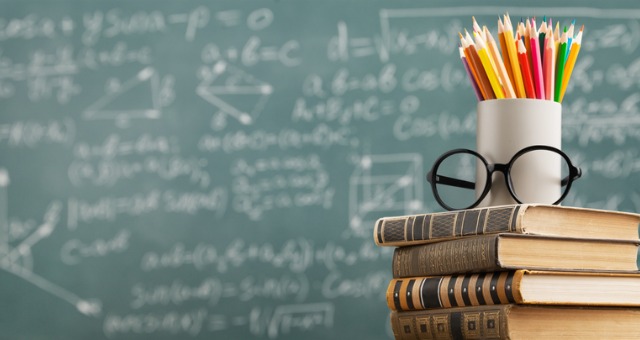Get Top Results with Primary Science Tuition Singapore from Experienced Tutors
Get Top Results with Primary Science Tuition Singapore from Experienced Tutors
Blog Article
Discovering the Different Mentor Methods in Key Scientific Research Education Today
The landscape of key science education is advancing, with various teaching techniques gaining importance in modern class. Inquiry-based understanding, hands-on experiments, and the combination of innovation are redefining just how educators involve young minds. Additionally, collective approaches and distinguished guideline are being utilized to accommodate the diverse needs of trainees, improving both involvement and understanding. As we take a look at these techniques, questions occur regarding their efficiency and the effects for future educational practices. What might these shifts in technique mean for the future generation of learners?
Inquiry-Based Understanding
Inquiry-Based Discovering (IBL) is an instructional technique that urges pupils to check out scientific concepts through doubting, investigation, and hands-on experimentation. This approach stresses the duty of students as energetic individuals in their discovering, promoting critical reasoning and analytic skills. By engaging with real-world inquiries, students become motivated and interested, which improves their understanding of scientific concepts.
In IBL, instructors act as facilitators, leading students as they browse their inquiries instead than providing info directly. This student-centered approach enables differentiation, accommodating different learning rates and designs. Pupils create skills in creating hypotheses, making experiments, and evaluating information, which are important for clinical literacy.
Additionally, IBL cultivates partnership amongst trainees, encouraging them to share searchings for and ideas. This collective inquiry advertises social skills and a feeling of community within the classroom. Furthermore, the procedure of questions motivates strength, as pupils discover to embrace failure as a tipping stone towards understanding.
Hands-On Experiments
Hands-on experiments are a crucial component of efficient scientific research education, matching the concepts of inquiry-based knowing. These experiments enable pupils to involve directly with scientific principles, fostering a deeper understanding via experiential knowing. By adjusting products and observing outcomes, young students can comprehend abstract concepts in substantial ways.
Such activities advertise vital reasoning and analytic abilities, as trainees hypothesize end results, conduct experiments, and analyze results. This process motivates them to ask inquiries, improve their understanding, and create a clinical attitude. Hands-on experiments can be tailored to diverse understanding designs, making certain that all pupils have the possibility to involve meaningfully with the content.
Additionally, hands-on experiments commonly motivate collaboration among peers, advertising team effort and communication skills. Working in teams enables students to share concepts, go over searchings for, and pick up from each other, which enhances their total instructional experience.
Including hands-on experiments into the key scientific research educational program not only enriches the finding out environment yet additionally cultivates a lifelong passion in science. By actively taking part in their education and learning, trainees are more probable to develop a passion for clinical query that prolongs beyond the class.

Modern Technology Assimilation
Incorporating modern technology right into primary scientific research education and learning has actually come to be increasingly crucial in fostering trainee interaction and improving discovering results. Making use of digital tools, such as interactive simulations, online labs, and educational software program, provides students with possibilities to explore scientific concepts in ingenious ways. These resources a knockout post facilitate a much deeper understanding of intricate topics by allowing students to envision and adjust variables that would certainly be not practical in a traditional class setup.
Additionally, innovation combination urges customized discovering experiences. Students can proceed at their very own pace, revisiting tough ideas through multimedia sources, which deal with various discovering designs. This adaptability not just sustains specific development however also grows a sense of autonomy in learners.
In addition, modern technology acts as a bridge to real-world science, connecting students with present research study and expert payments. Access to on the internet databases and clinical journals broadens pupils' point of views on clinical query and fosters vital thinking abilities.
Collaborative Learning
Collective learning plays a vital duty in primary scientific research education by cultivating team effort and communication skills amongst students. This approach urges learners to collaborate, share understanding, and involve in analytical, which enhances their understanding of scientific principles. By participating in team tasks, trainees learn to verbalize their concepts, listen to diverse perspectives, and discuss solutions, all of which are essential skills in both real-world and scholastic contexts.

Study indicates that collective knowing can lead to enhanced inspiration and involvement in science subjects, as pupils discover pleasure in common experiences (primary science tuition Singapore). Additionally, this method prepares trainees for future joint ventures, furnishing them with the abilities necessary for efficient team effort in college and expert atmospheres. Inevitably, welcoming collaborative knowing in key science education can substantially improve the understanding experience and promote a deeper understanding of clinical query
Set Apart Instruction

Differentiated direction can show up in various methods, such as differing the content, procedures, or products of knowing. As an example, teachers may make use of tiered assignments that supply varying levels of intricacy, permitting pupils to operate at their corresponding readiness levels. In addition, adaptable organizing link methods can promote collaboration among students with different abilities, promoting peer understanding.
Assessment plays an essential duty in this strategy, as it informs instruction and helps teachers comprehend each trainee's distinct requirements. Formative evaluations, such as quizzes and observations, can direct teachers in adjusting their strategies to enhance learning outcomes. primary science tuition Singapore. Inevitably, by applying set apart guideline in key scientific research education and learning, instructors can grow a much more equitable and effective understanding atmosphere, equipping all students to reach their complete capacity in understanding scientific sensations
Final Thought
In summary, the varied training strategies in primary scientific research education, including inquiry-based learning, hands-on experiments, modern technology assimilation, collaborative learning, and separated direction, jointly add to an extra reliable learning environment. These approaches promote crucial reasoning, analytic skills, and a much deeper comprehension of clinical concepts. By applying these techniques, educators can develop appealing and encouraging classrooms that resolve the diverse needs of trainees, ultimately promoting a long-lasting rate of interest in science and Web Site boosting academic accomplishment.
Inquiry-Based Learning (IBL) is an instructional approach that motivates trainees to explore scientific principles through doubting, examination, and hands-on experimentation.Joint learning plays an important duty in key science education and learning by cultivating team effort and interaction abilities amongst students.Research study indicates that collective discovering can lead to raised motivation and interaction in scientific research subjects, as pupils find enjoyment in shared experiences.In promoting a comprehensive understanding environment, differentiated guideline arises as a key technique to fit the diverse requirements and capacities of pupils in key scientific research education and learning. Ultimately, by carrying out set apart guideline in key scientific research education and learning, instructors can grow a much more equitable and reliable learning atmosphere, encouraging all pupils to reach their complete capacity in comprehending clinical phenomena.
Report this page